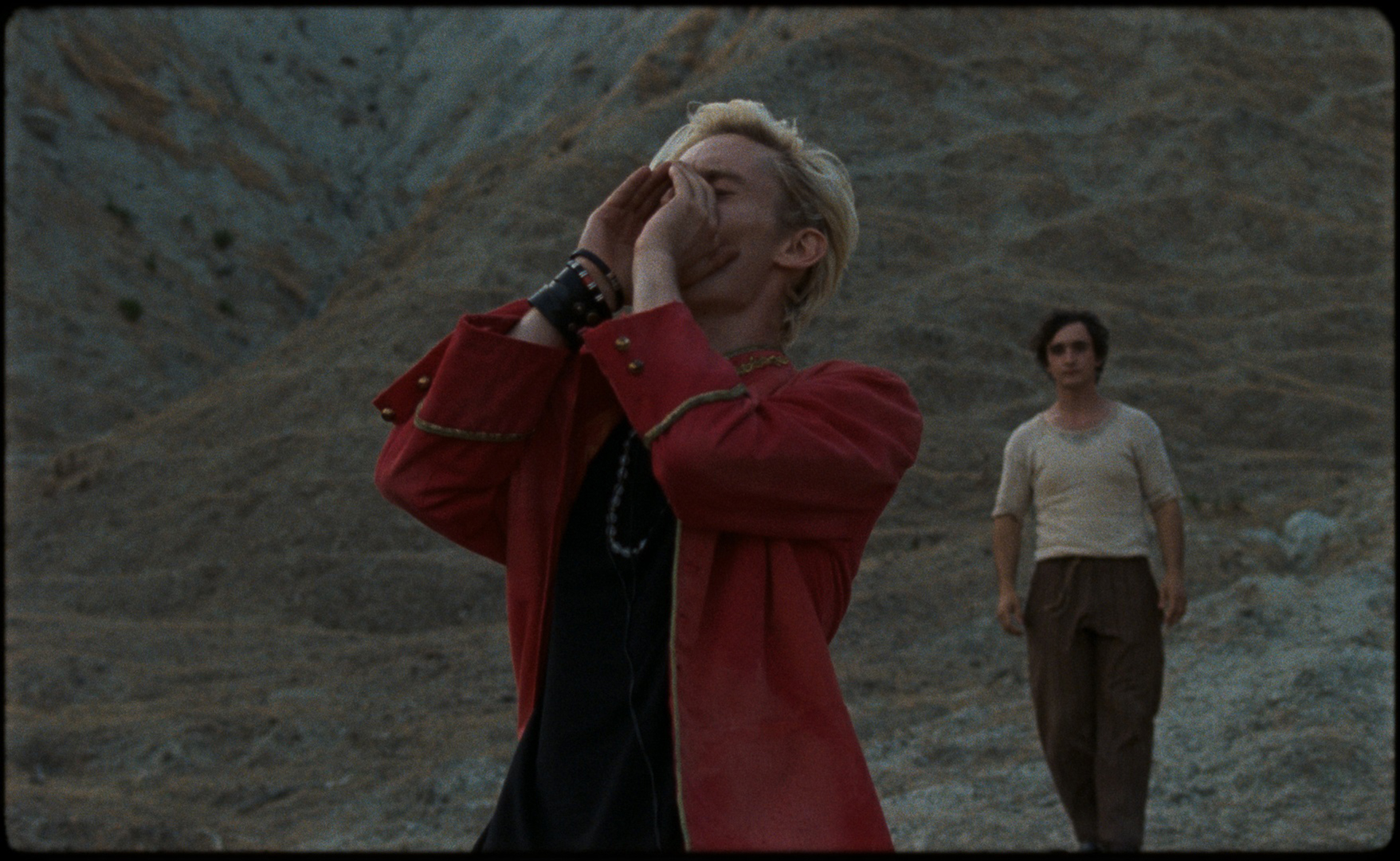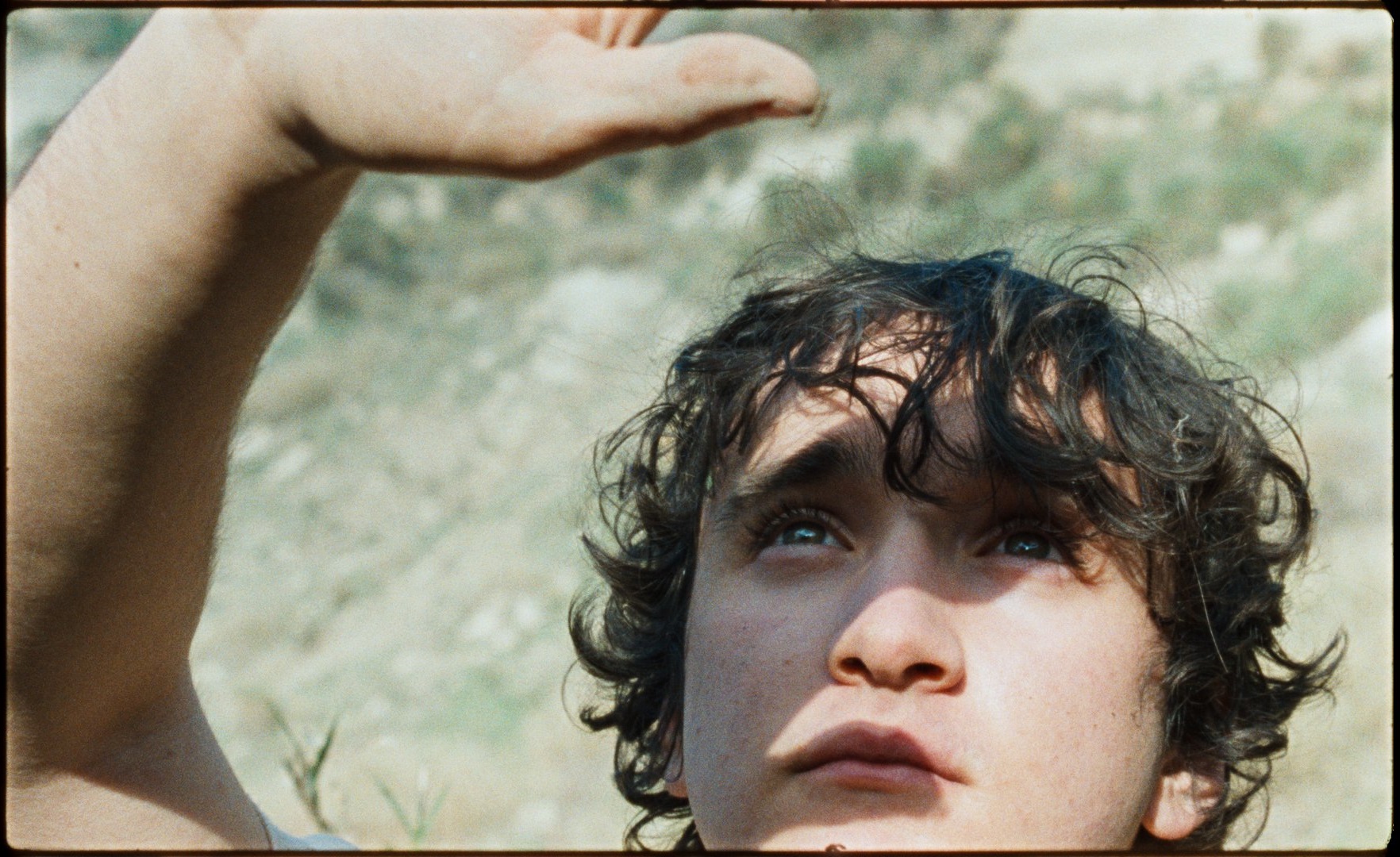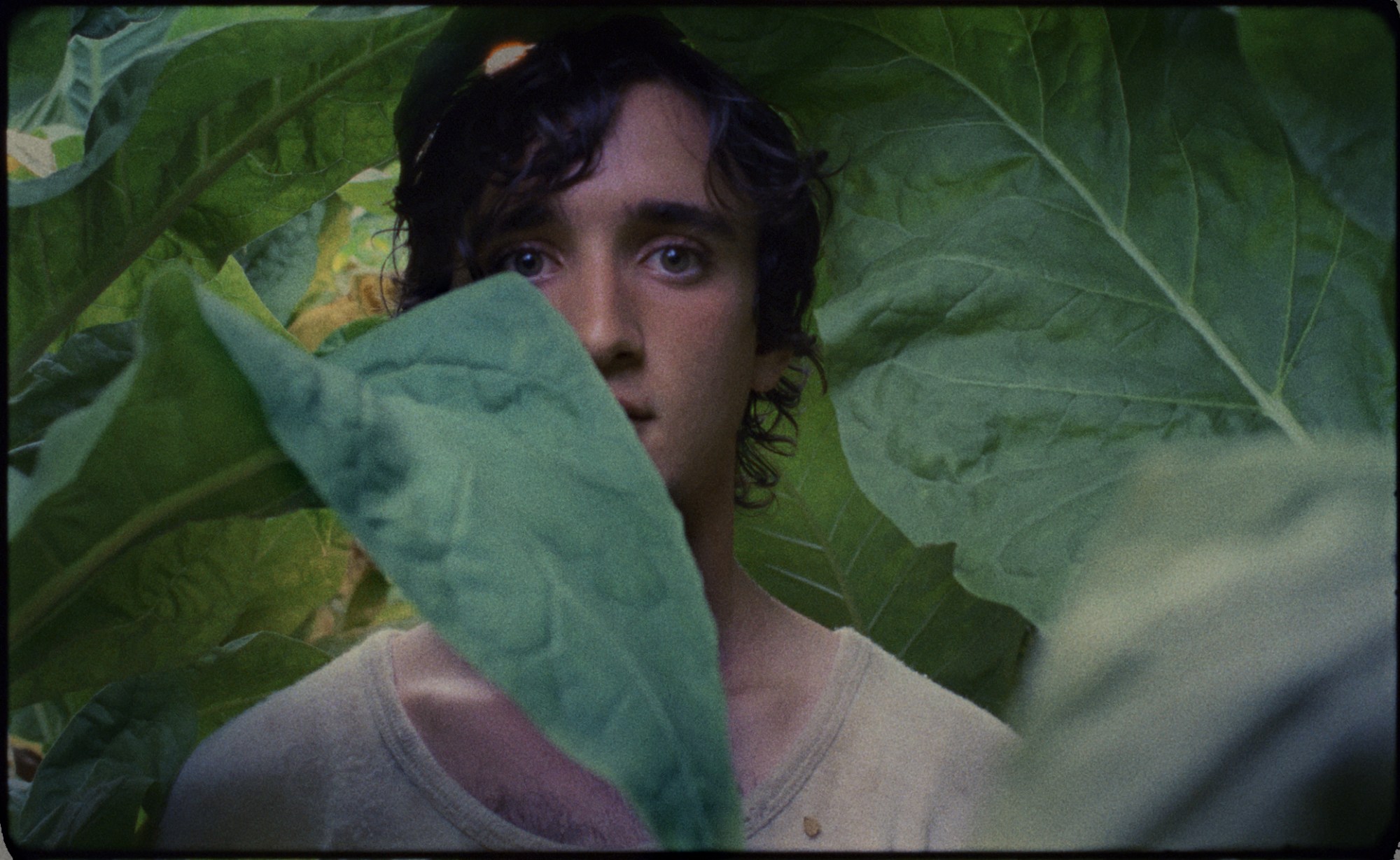It’s often said that ignorance is bliss; that by shutting yourself away from the outside world, you can live a happier life in a languorous bubble of your own making. But what happens if someone else — say, a rich family with a desire to exploit your good fortune — has made that bubble for you? Can we still be content while living a life to please others before ourselves? That’s the moral dilemma that lies at the heart of Happy as Lazzaro.
A big winner at last year’s Cannes Film Festival for writer and director Alice Rohrwacher, this Italian arthouse gem — part fairytale, part social realist drama — follows the life of the eponymous Lazzaro: a young peasant farmhand living in the town of Inviolata, where he and his family have remained since sharecropping was made illegal without their knowledge. Unfazed by the way others take advantage of him, Lazzaro lives in pleasant subservience to his siblings and elders. It’s only when Tancredi, the “cool” son of the wealthy farm owner arrives in the town, that Lazzaro establishes something that feels like a true brotherhood.
Alice Rohrwacher has a tendency to make work that seldom creeps out of the arthouse cinema world — but that’s our problem and not hers. The Italian director, born and raised by a beekeeper father and mother in rural Tuscany, has spent much of her adult life engulfed by storytelling, and it’s led to her creating a hat trick of startling films about people and possibilities that bend the rules of time and reality. Her debut, Heavenly Body, was a blistering portrait of what it’s like to come of age and find solace in the Catholic church. Its follow-up, the 2014 semi-autobiographical story of a beekeeping family who wind up on a fantastical TV game show, The Wonders, wound up on many critics end of year lists. It’s no surprise that Happy as Lazzaro has been met with equally strong early acclaim.
Ahead of its UK release, i-D sat down with Alice to talk about the film, the late Agnes Varda’s perception of her work, and why we sorely need more good in this world.

I wanted to start off by talking about journeys, and the one that the young protagonist of Happy as Lazzaro takes. When you’re building a story like this, how much of it involves where the character is ‘going’?
In cinema, the journey is always at the centre of storytelling, but with Lazzaro, I thought it was important to destroy that stereotype of a hero’s “journey”. During most movies, the protagonist discovers a different point of view and changes, but, for me, I wanted to show the path of a character who never changed; the exact opposite of the stereotype. The journey of Lazzaro doesn’t depict him travelling through the world, or through time. Instead, time is travelling around him. The problem is not how different we become as people, but how different the world around us is.
Perhaps that’s why a lot of critics have dubbed it a ‘social-realist fable’ which is a pretty spectacular oxymoron. Was it always your intention to make something that toed that line between harsh reality and fantasy?
I wanted to make a film in which those two element talk to each other, because we live in a world where they don’t. To make a reality stronger, you need the symbolism of fairytales. Imagination without reality is like a man trying to make work from thin air: there is nothing, and you need the ground to measure how far you have come. But reality is very important too. The meaning of the film is not about escape, it’s about going back to reality and looking at the past with the feeling of Lazzaro. I didn’t want to make a fairytale that helps people to imagine a different world, I want people to look at the world we live in now — just with more compassion.
It was the late Agnes Varda who said you touched a “sore spot” with your work, in terms of how it depicts the way we let down rural communities, like the extended family that live in Inviolata in the film. As a storyteller, what is it that draws you to them?
I’m happy to know that Agnes said that! We were friends, and I admired her freedom, and her incredible work. For me, community has always been a big question: are we better together or alone? And what is it to be a community? From my first film, that was always a question I asked: the connection between individuals and communities. In my first film [Heavenly Body], it was about a religious community. My second [The Wonders] was about a family. This time around, we’re dealing with a big, big family! It’s always something that’s important to me: to see if it’s possible to build something together.

You and your cinematographer, Hélène Louvart, (who shot 2017’s Beach Rats ) have captured such a soft and understanding male protagonist in Lazzaro. I wanted to ask about the ‘male gaze’, and the way in which women storytellers can often capture male characters in a less clouded way that male storytellers do.
Sometimes that’s why we need strangers: to let us know who we are, and that we need ‘the other’ to understand ourselves. That’s the beautiful part of being different. With Lazzaro, I didn’t think I wanted to create another portrait of masculinity, I was working with a saint instead. Lazzaro is a patron saint, and his gender isn’t the most important thing about his character. Maybe it’s important to note, instead, that he’s also a man. In fact, I think that all of the men — and all the women — we meet in the film are ridiculous. No one is a prototype of a good person, they are all full of problems and contradictions.
You cast Youtuber-slash-popstar Luca Chikovani in this film as the wealthy, privileged co-lead alongside Lazzaro, who’s played by a streetcast newcomer Adriano Tardiolo. Was there a reason you wanted someone like Luca to play that part?
We decided that we really wanted performers to play the parts of the rich people in the film, because in this film the wealthy are pretending in real life. It was important that all of the Marchesa family [who own the farm] were actors or in showbusiness; those who know about that representation of themselves. When we were looking for Tancredi, our casting director Chiara Polizzi thought we should look at YouTubers because they are victims of their own imagination. But Luca is not just a YouTuber, he’s a great actor too! It was beautiful to bring those two together: Adriano and Luca.
Happy as Lazzaro tells the story of an unwavering good always being able to exist, no matter how hard we try to suppress it. Is there enough good in the world today?
I think the meaning is that we should still remember what goodness is. There’s not a lot of good in the world, but there are still memories of a time when it was. We have to make those memories more powerful. Right now, the destruction of the world is succeeding, but that’s why I made this film. To clear that memory, and remind us of the good.
Happy as Lazzaro is released in UK cinemas on 5 April.
